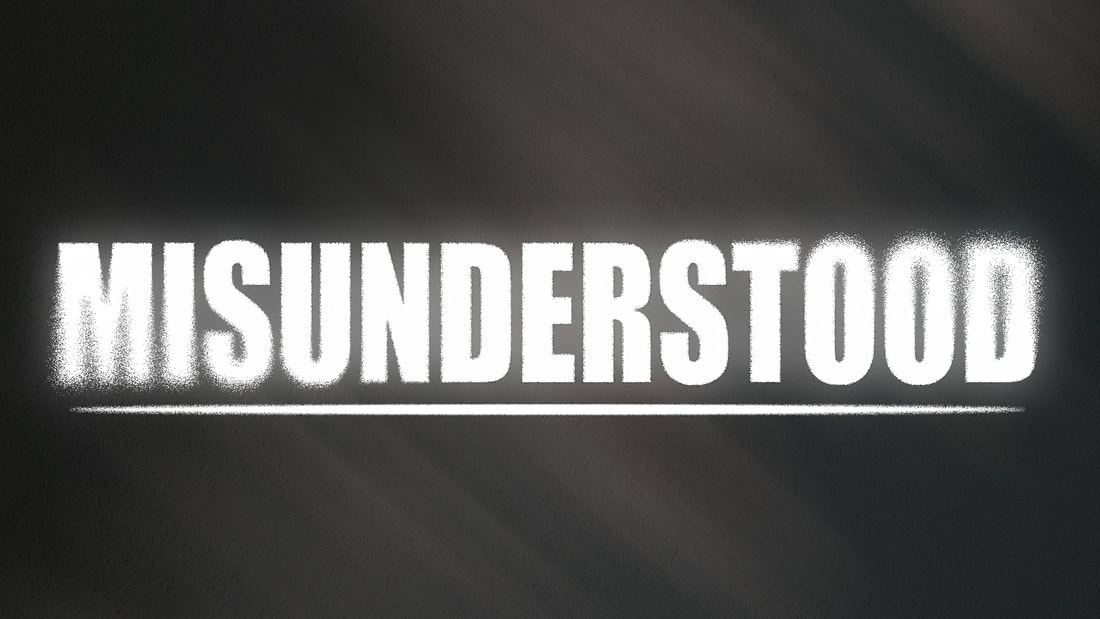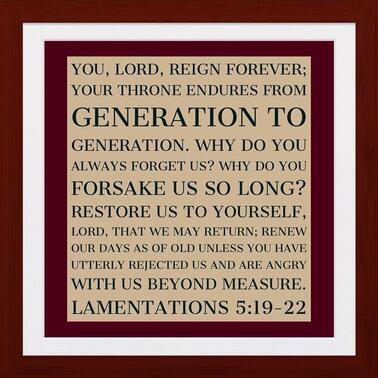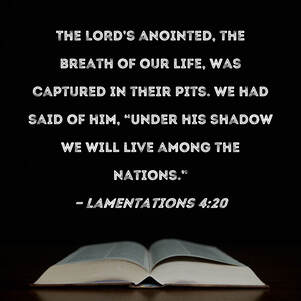|
Since Our Savior Preschool just wrapped up another year filled with learning, fun, laughter, music, and a lot of Jesus, I thought I’d share some highlights and pictures from this school year. Students…
Sometimes pictures speak louder than words… so enjoy these joy-filled rays of sunshine.
Could I ask for your help? Your support in spreading the word about our incredible and growing ministry would mean the world to us. Please consider forwarding this email to someone you know who is looking for a preschool that nurtures both academic and spiritual growth in their children. Your referrals are invaluable to us. We are thrilled about the upcoming 2024-2025 program, which promises even more days of fun and learning. Registration is now open for Preschool 3’s to attend Monday, Tuesday, and Friday. Preschool 4’s will have the opportunity to learn all week long. We can’t wait to welcome your little ones! Learn more and register at oslc.com/preschool. And, you can always catch joy-filled sunshine from our preschoolers at oslc.com/preschoolnews.
0 Comments
 Do pastors only work on Sundays? I could write a book with that title. While Sundays may be the most visible part of a pastor's work, being a Senior Pastor (or any pastor) is a full-time calling. Notice I said "calling," not a "job." It is as much a spiritual experience as it is a human one. That's why I believe that the call seeks the person… the person doesn't seek the call. From my perspective, a calling is different from a job in that being a pastor is much more than a means of paying the bills. Being a pastor is a complex collision of purpose, personal values, passion, fulfillment, and internal and external motivation (specifically, the Holy Spirit). Without sounding hyper-spiritual, pastoral leadership is so humanly crushing that I don't believe you can do it without God's Spirit leading, guiding, strengthening, and sustaining you. A community of leaders is also essential to shepherding and leading well. And here's why: not only is the Senior Pastor the human-organizational leader of the congregation (which is a full-time job itself), but the role is also responsible for spiritual leadership. This spiritual leadership includes preaching and teaching God's Word, becoming aware of and ministering to the needs of the wider community, seeking God's direction and vision for His church, ensuring people are shepherded and spiritually cared for, partnering and mutually supporting other pastors in their ministries, and carrying the burdens of people as their pastor. Here are some "sneak peeks" into my week as your Senior Pastor… Every morning, I wake up and recenter myself as a child of God. Reading a passage of scripture (I'm currently in the Psalms), I remember that I'm a baptized child of God. Whatever happens throughout the day, I am His. I believe that God's forgiveness is mine through Jesus and that the Holy Spirit is constantly at work in my life. I started this "habit" early on in ministry, which fuels my daily prayer. I physically feel different on the days when I short-sell this time with God. Before I leave for the "workday," I kiss my wife (TMI?) and hug my kids. I am the only person who can be a husband to my wife and a dad to our kids. Throughout the year, we shift evening schedules to make family time work. Sometimes we get it right… other times, we don't. We live in a never-ending ocean of grace and learning together. Driving through my neighborhood or dropping kids off at school, I often wave to or briefly talk with my neighbors. We love our neighbors. We believe God has put us together on our street with and for each other. If you've read this far, you might think, "This is what you do for work"? While I don't get "paid" to follow Jesus, love my family, or be a good neighbor - I don't believe I can be an influential pastor or leader without continually growing in this way of life. During my "work week," I facilitate conversations, learning, discernment, and decision-making. Whether preparing for or leading a meeting, phone and email conversations, face-to-face visits, or community gatherings, most of my time is spent with people. Mondays typically begin with a video conference call with other Large Church pastors. We spend time in prayer, personal sharing, and mutual encouragement and support. I then connect with our ministry staff for a daily prayer time. I'll then connect with my assistant to review the week and our Operation Director to coordinate on anything urgent. The rest of the day is spent preparing sermons, responding to emails, and writing my weekly email and blog. I will sometimes grab lunch or coffee with somebody or make a care visit. I’m getting back into the habit of meeting a friend on Tuesday morning for an early morning walk/hike. Once a month, I also spend the day with local Lutheran pastors for a collegial gathering. Otherwise, my day continues with daily staff prayer time. I will meet with our Message Planning Team or finish my sermon and writing for the week. Once a month, I have an afternoon video call with our Northwest District Board of Directors' "All People's Group" Task Team. I will use the rest of my Tuesday to follow up on more urgent pastoral care calls or prepare for Elder or Board of Director meetings. Tuesday evening is Life Group night or an elder's meeting (generally twice a month). I start my Wednesdays with an Executive Coaching session before spending the rest of the day with our ministry staff in meetings. We will have lunch together once a month to celebrate birthdays, work anniversaries, and other significant life happenings. The afternoons are often scheduled with various meetings about baptisms, ministry, or church business. I am onsite on Wednesday evenings to connect with people. It's also a great time to schedule meetings with people who work during the day. Thursday begins with staff prayer time, which then moves into a worship "Production" meeting, during which we review everything for Sunday worship. I'll spend the rest of the day in personal leadership development time, making pastoral care visits and phone calls, and often have mentor meetings with our Pastoral Intern. I will sometimes also connect with a group of local pastors on Thursday mornings once a month. Our Board of Directors will meet throughout the year on Thursday evening. Friday is my sabbath. Now that our kids are in school, Beth and I find Friday an excellent "date day" that fills our buckets. I also love catching a nap, running errands, and cooking on my sabbath. Saturdays are precious to us as a family. When we are not serving at Faith in Action, we explore new places, hike a mountain, or ride bikes on a trail. Sunday begins like "normal." When I arrive on site, I often pray for our church, community, and world while driving or walking around our campus. I'll then review my sermon slides and listen to the worship band warm-up. Sunday morning is when I get to be with you in God's Word, pray with and for you, share communion, and enjoy being with you. I often go home with a filled heart to either rest or spend time outside with my family. We will sometimes invite people over to enjoy the day with us on Sunday afternoons. Is each week really that organized? More often than not, "life happens," and many weeks are not as orderly as I just described. I’m thankful for my family and my Assistant who are adaptable, flexible, and understand that ministry is first and foremost about people (after Jesus). Memorial services and weddings, community events and tragedies, pastoral counseling requests, keeping our Board, elders, and leaders informed, and the ongoing "business" of the church ebb and flow in and out of my week. They’re not “distractions” or “extra work”... rather, they are what it means to serve people like Jesus. Final Thought But let's think about this. . . Whatever you do—whether you're a student, in the workforce, retired, staying at home, or anything in between—you have a calling, too. You, like me, have humanly crushing responsibilities. We need God's Spirit to lead, guide, strengthen, and sustain us. We need a community of people around us to live and lead well. Let me know what you think and how your life and work are more of a calling than a job.  Sunday is Mother’s Day and here is where my heart is going into the weekend. Let me know what you think. We all are given an opportunity to thank God for giving us mothers - default, biological, adopted, surrogate, symbolic, and spiritual. There will be greeting cards, kind gestures, and plenty of burnt toast. And while all the activities may even exhaust the extroverts, each is an expression of love and thanksgiving. At the same time, this religious-now-become-Hallmark holiday has the ability to possibly make some people unintentionally feel shame, guilt, sadness, and grief. Afterall, it is the annual forced remembrance of a child who was never born. Sometimes the human body doesn’t work - even with human and medical assistance. Dreams can be lost or never come to fruition. And sometimes, it’s the prayers and dreams we hold onto for kids that scare us. I’m glad that God does not define personhood by parenthood. While being a mom is part of who a person might become, I believe that only the grace and love of Jesus can give us honor, value, and worth - by faith. A mom is first and foremost a child of God, loved, forgiven, equipped, and empowered through Jesus by the power of the Holy Spirit. Having personally experienced with Beth a hard and long journey through infertility, learning we couldn’t adopt the child who was placed with us, unexpectedly having biological kids, and now parenting kids of our own, Mother’s Day brings joy and heartache. Add my personal adoption journey and it’s a day filled with all of the feels. As I lean into all of this, I am learning that joy and heartache can coexist in the same moment and space. I can place both my joyful thanks and saddest grief into the hands of Jesus. Afterall, moms are gifts from God to help us better know the heart and love of Jesus.  I spent the week in St. Louis at the Multi-Ethnic Symposium and Multi-Asian Leadership Gathering. I’m leaving with so many questions and takeaways. Let’s find a time to meet up if you would like to hear about them. One takeaway from the Keynote Presentation Mi Casa es Su Casa is that there is a difference between multicultural, cross-cultural, and intercultural perspectives. The speaker, Rev. Dr. Leo Sanchez, shared that a multicultural perspective acknowledges the presence of different cultures, races, and ethnicities. However, there is little or no relationship or interaction with each other. I initially thought this was like our American understanding of tolerance, where everyone does their own thing and we coexist. He continues that cross-cultural perspectives imply that one culture brings gifts or “the goods,” and the other receives them. This perspective can lead to one-sided relationships, paternalism, and dependency. Typically, one culture dominates the other by default. This point was illustrated with a story of using a church kitchen where everyone can use it, but owned by one specific group who sets the rules. Dr. Sanchez shared that Jesus modeled intercultural perspectives for His disciples. He shares that, like a soccer team, everyone contributes. And each contribution brings something different; every contribution is equally valued. Together, each person and culture contributes to creating the whole. Reflecting on this point, I think of practical implications. Here are some initial thoughts:
Now, I did mention immigration in my note to you this week. And we did discuss that. Many of us are left with the conviction that as Jesus' followers, we first ask how we can love and serve our migrant neighbors within the bounds of the law. It’s something to reflect on and continue to work out. But leading with the love and service of our neighbors - as Jesus did, opens so many doors and builds so many bridges that there might not be much time for legalities. We can entrust that to God using those appointed to figure that out. We are called to love and serve our neighbor. What do you think? I’d love to hear from you. Have you noticed how misunderstood Jesus can be in today's American cultural context? I sometimes worry about my faith needing to be understood. I mean, I want people to understand and "get it." Perhaps you do, too. Some people may say Jesus started a new religion. Others might say Jesus came to free them to be spiritual and not religious. And many of us have seen the dangerous convictions that Jesus is at the center of modern social and political movements. Apostle Paul, who saw Jesus with his own eyeballs describes it like this: Jews demand signs, and Greeks look for wisdom, but we preach Christ crucified: a stumbling block to Jews and foolishness to Gentiles, but to those whom God has called, both Jews and Greeks, Christ the power of God and the wisdom of God. For the foolishness of God is wiser than human wisdom, and the weakness of God is stronger than human strength (1 Corinthians 1:22-25). The Apostle Paul says that Jesus is misunderstood because He is a stumbling block (literally, a scandal). Why would the God of the universe love people so much that He took the curse and punishment of sin for people who wouldn't love Him back upon Himself? For some, Jesus was misunderstood because he challenged their religious beliefs about God and themselves. The Apostle Paul also says that Jesus is misunderstood because He made irrational choices. Why would a Palestinian Jew go to a Samaritan well and bond with a woman by asking her for a drink of water? Why would a rabbi wash his disciples' feet? Why would the movement leader back down in the moments when he could rise up? For Greeks, Jesus was a fool. Much like the 1st-century Greco-Roman culture on the isthmus of Asia and Italy, I am seeing how people today are struggling to live in a world that is increasingly polarized in every way. And I am convinced that the gospel is still the dynamite of God (Romans 1:16) that changes how we feel, think, and act — no matter how misunderstood it (and those who share it) might be. The gospel did and continues to change how all people feel, think, and act because Jesus didn't come to start a new religion or to free us from religion to become more spiritual. And Jesus surely didn't come to bring a social justice or a political perspective. Jesus came to seek and save people from the death penalty for their sins as well as their own devices. Taylor Swift is right: they come with prices and vices, and we end up in crises - it's a tale as old as time. And if that’s true, then we are invited to live like Jesus to look, listen, and love the people in front of us - wherever we are... always... no matter how misunderstood it might be for us or for others looking and listening in. If you want to get your heart and head into this week's message before Sunday, read Acts 19:1-19. Lamentations 5 begins with the word, remember. Chad Bird helps us understand the significance of this word. You can click here to read the article. If you read Chapter 5, you might realize that Jeremiah doesn’t share anything he hasn’t already said before. It’s as if he knows that only an act of God can change reality. And perhaps that’s the point of the entire collection of laments… that only divine acts of mercy like healing, humility, servanthood, a crucifixion, and a resurrection can bring complete restoration and freedom to love and serve God and others. Which means that all of life is remembering to die to ourselves so that we can rise again with Jesus. This lament, without the anointed one, is hopeless. But, with Yahweh’s anointed One, Jesus, there is always hope in moments of despair. In Hebrew religion and culture, three roles were designated to represent God’s presence and power.
Prophets were people who were individually called by God to forthtell truth. We think of people like Elijah, Jeremiah, and Isaiah. Prophets are often beaten up and ignored either out of ignorance or fear. Ultimately, prophets bring conviction and comfort to their recipients - even if (or perhaps especially when) they don’t completely understand the message themselves - like Jonah. Without prophets, there would be no real-life truth-telling. Priests were the people who stood between God and His people. If you think of them as bridges, priests will carry God's people's sins, burdens, and praises by offering sacrifices on behalf of a community. In turn, the priests would also echo God’s words of forgiveness, cancel the debt caused by people’s sins, and instruct God’s Word to the people. Without priests, there would be no reconciliation or justice for sin between God and people. Kings were the royal representatives of God’s authority and power in human space. At one point, God’s people saw that other nations had kings who ruled with efficiency and human energy. Forgetting that they already had a King in Yahweh, they asked for a king - and God gave them kings. Some of them were Godly, like David. Others were ungodly, like Saul. Regardless of their character, kings were to execute God’s human laws among communities of people. Without kings, there would be no legal, moral, or ethical order, only chaos. This context is essential to understand when it comes to Lamentations 4 because this Hebrew poem is lamenting the loss of all three unique relationships with God. The prophetic voices have gone silent. The priests have been taken from the temple. The king has been killed. In every sense, for the Hebrew people, God is gone. The good news is that the lament is also a prophetic word in itself. While the lamenter expresses the collective memory that their humanly anointed prophets, priests, and kings are gone (Lamentations 4:20), the title “the Lord’s anointed” is a direct reference to the promised rescuer Messiah from Genesis 3:15. Don’t miss that Jesus is the prophet of prophets, the priests of priests, and the king of kings. He is the One who is also carried off into foreign places, silenced, taken from the temple, and killed on the cross. He is also the One who, three days later, rises again to new life. And that new life continues to speak truth into our world today through His Word. He continues to stand between God and all people because Jesus is the Lamb of God - the sacrifice of sacrifices for all sin. And Jesus is the king of kings who rules and judges with the equity of grace and mercy. This lament, without the anointed one, is hopeless. But, with Yahweh’s anointed One, Jesus, there is always hope in moments of despair. When you’re in the pit, sometimes you just need to sing something. As a teen, I listened to my “angry music” when I was in the pit of self-loathing. You probably had your go-to music, too. Spirituals rose out of the pit of slavery. If you’re in worship on Sunday, you’ll get to sing one with our choir! And the Hebrew people leaned into well-known songs when they were in the pit of the Babylonian captivity. Lamentations 3 demonstrates how the Hebrews leaned into their ancient songbook: the Psalms. I can find Jeremiah leaning into at least 10 psalms. Read the chapter and see how many you can find. When Jesus is in the deepest, darkest pit of the death on the cross, He also leaned into the ancient Hebrew song: My God, my God why have you forsaken me? (Psalm 22). Music is an art that reminds us of the past, centers us in the present, and points us to the future… and that’s a gift from God we cherish while we’re in the pits of life. Remember, you always have a song to sing. Let me know in the comments what songs you lean into when you’re in the pit… because when you’re in the pit, sometimes you just need to sing something. Trust is essential to living. Friendships, classrooms, marriages, workplaces, and churches rise and fall on trust. You know when you have and feel it when you've lost it. Trust leads you to do radical things, and mistrust leaves you challenged to do or say anything. You cannot live without trust. The truth is that trust is fluid. It changes, adapts, ebbs, and flows and can mature or disintegrate. And until recently, I don't think I realized how laments are a deep, rich, and essential part of building and maturing trust - with God and others. Regarding the Old Testament, Walter Brueggemann is one of today's most respected thinkers, scholars, and influencers. In his book Prophetic Imagination, he writes: "Jesus sees that only those who mourn will be comforted. Only those who embrace the reality of death will receive the new life. His statement implies that those who do not mourn will not be comforted, and those who do not face the endings will not receive the newness." He continues: "I used to think it curious that, when having to quote Scripture on demand, someone would inevitably say, 'Jesus wept.' It is usually done as a gimmick to avoid quoting a longer passage. But now I understand the depth of that verse. Jesus knew what we numb ones must always learn again: (a) that weeping must be real because endings are real, and (b) that weeping permits newness. His weeping permits the kingdom to come. Such weeping is a fearful dismantling because it means the end of all machismo; weeping is something kings rarely do without losing their thrones. Yet the loss of thrones is precisely what is called for." Lamentations 2 is one of the "darkest" chapters in the scriptures. It illustrates the depth of human suffering, loss, grief, and raw bitterness. And when we lament - whether to God or others, we set aside both our machismo super-human tendencies and our self-loathing. We become known for who we really are: human. Laments means the end of all of our machismo. While often ascribed to a specific culture or gender, machismo is part of every human heart in 587 BCE and 2024 CE. Scholars and social commentators agree that machismo is human pride amplified by aggressive or oppressive human expressions. It shows itself in dishonoring behaviors toward others, seeking power over people and situations, controlling issues, and, to its furthest extent, human abuse of every kind. Spiritually speaking, it is when one is filled with ego and void of humility. Whether you call it machismo or sin, trust erodes, and we need a way back to God and with each other. Author and Former Pastor Paul David Tripp writes in Instruments in the Redeemer's Hands: People in Need of Change Helping People in Need of Change: "The church is not a theological classroom. It is a conversion, confession, repentance, reconciliation, forgiveness, and sanctification center, where flawed people place their faith in Christ, gather to know and love him better, and learn to love others as he designed." When we lament the darkness of our machismo heart, we see the light shining through the entire time (John 1:5). When we speak our truth, God hears us. When we lament the darkness of our hearts, God receives it. When we nail the machismo-ness onto Jesus who hangs on the cross (confession), trust is rebuilt… because we'll discover in Lamentations 3 - God's faithfulness and His mercy is new every moment (Lamentations 3:22-23, 1 John 1:9). . . especially in our human-ness. Then, we can begin trusting God and each other because we see who we are - completely loved, forgiven, and human. Hebrew poetry, while intimidating, is a beautiful work of art. Beyond literary awe, by faith, we trust that it is God’s Word and message to us, inspired by His Holy Spirit, announced through human voices, demonstrated in the person and work of Jesus Christ, and extended through the Body of Christ, the church (you and me). At first glance, Lamentations 1 looks like a sad poem. It begins with loneliness and weeping. It continues to describe being abused and bullied. And then there is a deep remorse and repentance that we have rebelled against God and mistreated others. In the end, all we want is to be seen by God. And the poet, inspired by God’s Holy Spirit, gives us hope in the middle of the disaster he describes happening all around him and to him. The poem is written as a chiasm. The Hebrew alphabet has 22 letters. If you divide them into two sections, you’d have 11 letters in each section. If you arrange the first 11 letters to form a downward arrow and the last 11 letters to form an upward arrow and then join them together, you form an “X” (chi). And in the perfect middle of the “X” are the last two lines of verse 11: “Look, O Lord, and see, for I am despised.”. When it comes to chiasms, the center where the two sides of the alphabet meet signals the most critical point of the entire poem. I think the English translation is somewhat lacking because the Hebrew word zalal, while translated as despised, carries the understanding that to be despised means to be a squanderer, worthless, or insignificant. Interesting. Fast forward several centuries, and Jesus shares a story about a squanderer. Once, a son rudely asks his dad for his share of the inheritance, as if his dad is dead. Surprisingly, the dad agrees and gives him the money. The son leaves for a faraway place and squanders everything away through foolish living. He feels worthless and insignificant - so much so that he chooses to live in a pig pen. Feeling ashamed for squandering his dad's stuff and believing his dad despises him because of his foolishness, the son decides to return home and work as a slave-servant. On his way back home, the dad, who has been looking for him, spots him from afar. The dad rushes to him, hugs him tightly, and they walk home together. Before the son can say anything, the dad dresses him in the family robe and puts a ring on his finger (showing he's a full part of the family). Then, the dad throws a huge party to celebrate his son's return, because he was lost and now he's found. “Look, O Lord, and see, for I am a squanderer.” is the cry of Jeremiah (individually), the Hebrew people in Babylon (collectively), and you and me today. The good news is that God our Father loves welcoming us squanderers home. So, next time you feel worthless, insignificant, or despised - remember, while you might be a squanderer - Jesus already sees you as He is running out to welcome you home. |
Connect with
Pastor Tim Meet Pastor TimTim Bayer has served as Our Savior's Lead Pastor since September 2019. He also serves as an Adjunct Instructor at Concordia University - Irvine, a National Leadership Facilitator and Resource, and with the Northwest District of the Lutheran Church - Missouri Synod. Archives
June 2025
Categories
All
|
OUR CHURCH
|
GET INVOLVED
|
OUR SCHOOLS
|
|
|
© 2025 | Our Savior Lutheran Church | 253.531.2112
4519 112th St E, Tacoma, WA 98446 Office Hours: Mon-Thu 8:30-3:00 Sunday Services: 9:00 & 10:30am |







 RSS Feed
RSS Feed